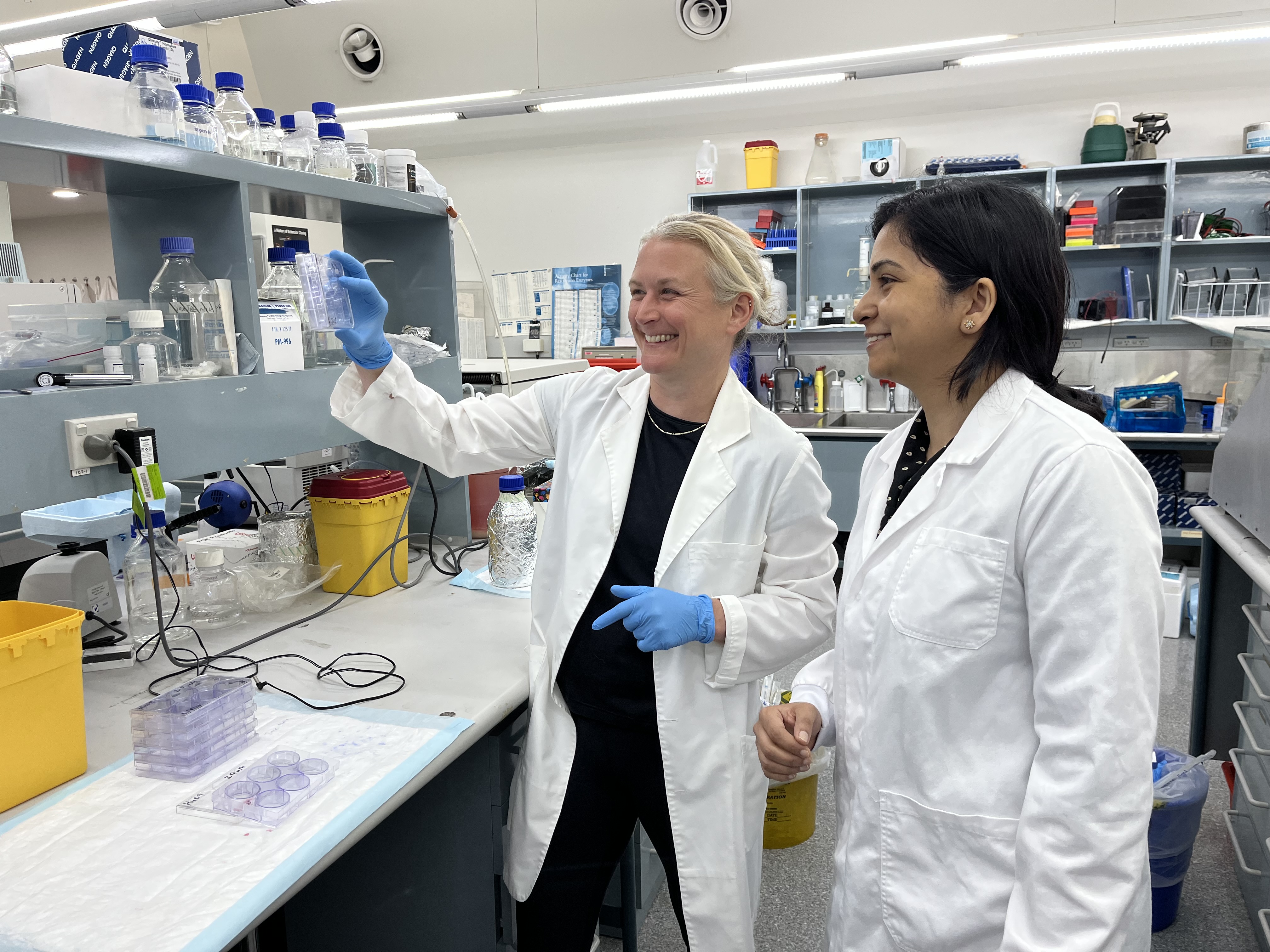Media release
From:
Scientists at Children’s Medical Research Institute (CMRI) have found a promising new approach to treating some aggressive types of cancers which can be very hard to cure.
The research, led by Dr Chris Nelson in CMRI’s Telomere Length Regulation Unit and published in Genes & Development, studied proteins that drive the growth of cancers such as neuroblastoma, a childhood cancer, and glioblastoma, one of the most dangerous and fast-growing brain cancers.
A major challenge with these cancers is that they often become resistant to treatment. Even when therapy works at first, the tumour can learn to adapt and survive, making it very hard to cure. This is why researchers are urgently searching for new treatment approaches.
CMRI’s scientists recently discovered that a group of cancer-promoting proteins called EYA proteins work closely with another protein called PLK1 to keep tumour cells alive. They found that if both of these proteins are blocked at the same time, the cancer cells cannot survive. This is known as a synthetic lethal interaction, meaning the cancer cells depend on these two proteins, and losing both is fatal to them.
The study investigated drugs that can block this pair of proteins, revealing a new way to target cancer cells that have become resistant to other treatments.
Professor Hilda Pickett, Head of CMRI’s Telomere Length Regulation Unit, described the team’s work on protein-blocking drugs that shut down these critical survival pathways.
“We found that these inhibitors can target the key survival mechanisms that cancer cells rely on,’’ Professor Pickett said. “Because these survival pathways are used in many different cancer types, this discovery could help improve treatment for a broad range of cancers.”
Professor Pickett added that the results provide an important foundation for further research, bringing this potential new treatment strategy a step closer to being tested in patients.
Read the full article here: https://genesdev.cshlp.org/content/early/2025/11/20/gad.353271.125.full.pdf+html



 Australia; International; NSW
Australia; International; NSW


